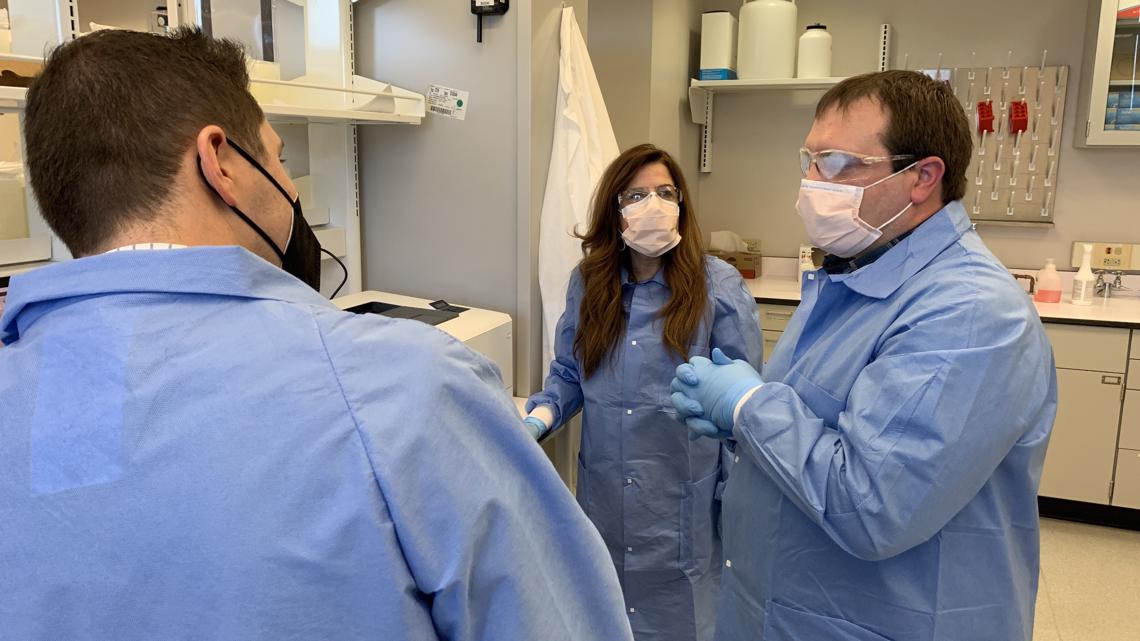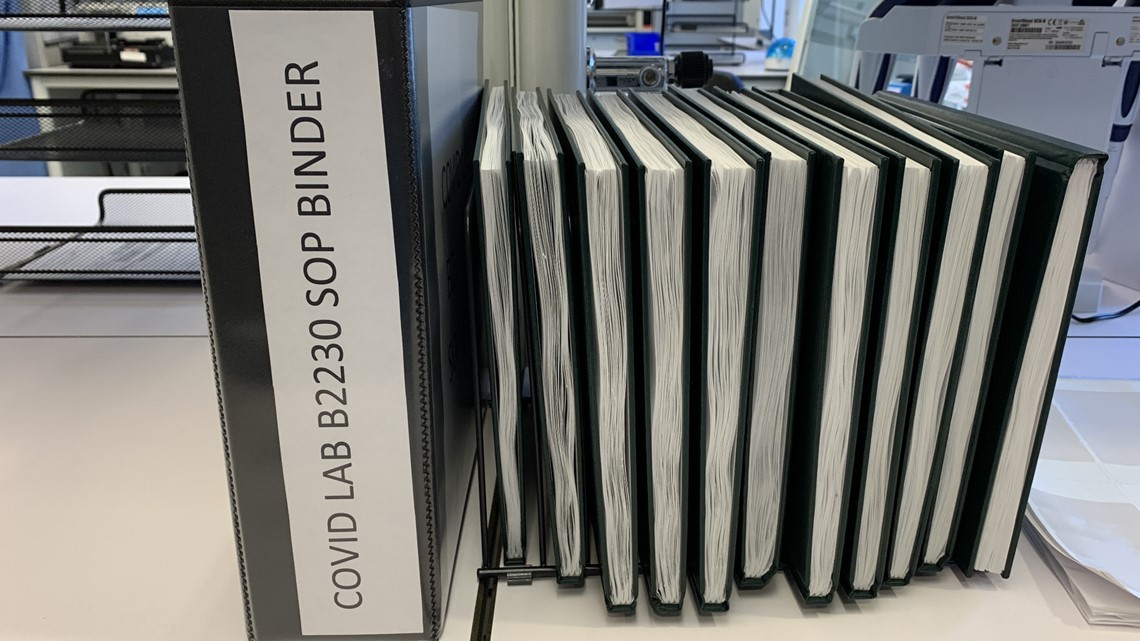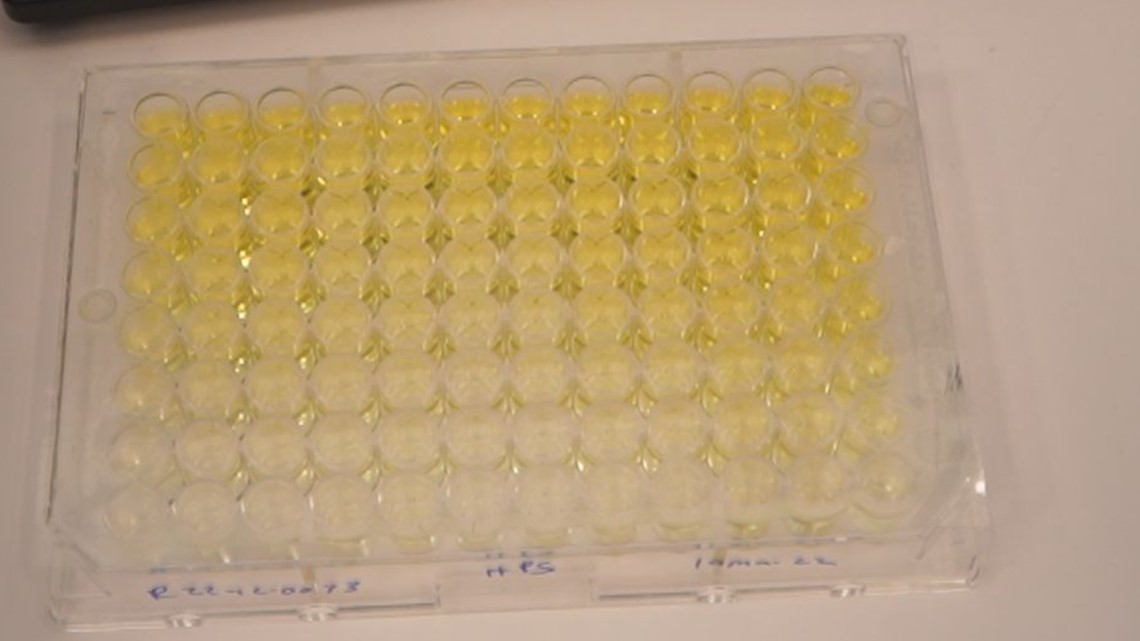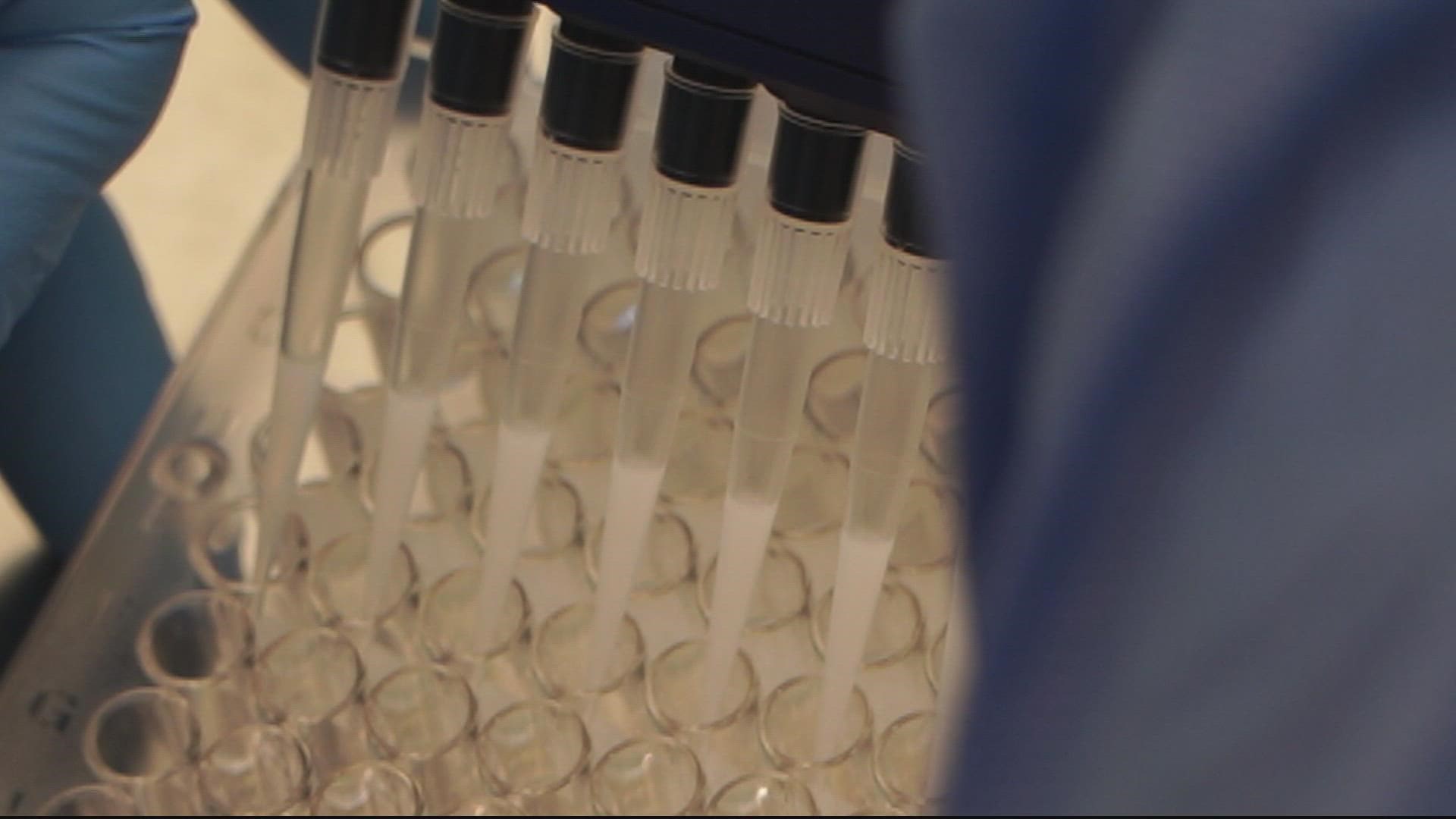FREDERICK, Md. — 50 miles north of the nation's capital, surrounded by large open fields, you'll find the Frederick National Lab for Cancer Research. Inside this building, some of the country's top experts are looking to get a better understanding of antibodies, formed in response to COVID-19 or the vaccine.
The lab is the only U.S. national lab focused on research, technology and collaboration in the biomedical sciences. To discuss what their research has found, the VERIFY team joined them to take a look at the lab.
Dr. Ligia Pinto has worked in the area of immunology of infectious diseases and vaccines for more than 30 years. Her work helped develop an International HPV Serology Standardization Initiative.
Because of her expertise in immunology and HPV vaccines, in April 2020 the National Cancer Institute asked her to pivot, develop and standardize the Human SARS-CoV2 Serology Standard.
“We felt like we could help," she said. "And that was really important to us.”
Dr. Troy Kemp is the Scientific Manager at the Serology Lab and works with Dr. Pinto.


"Every single day is something new," he said, dressed in a blue lab coat, gloves, and protection goggles. "It's always quite interesting."
The duo is part of SERONET, a unique collection of scientists including epidemiologists, cancer researchers and infectious disease experts brought together in respond to the pandemic.
Pinto said that one of their main goals is to make sense of the many studies being released related to antibodies and COVID-19.
"In order for those antibody tests to have clinical and public health use," she said, "they need to be extremely accurate, and they need to be reliable."
The antibody tests developed in the COVID-19 Serology Lab can measure the antibodies, the disease-fighting proteins that your body produces in response to an infection or vaccine.
Dr. Pinto said antibody testing can be tedious and time-consuming and needs to be replicated over and over to be trusted.


According to the data, Dr. Pinto said vaccines will give you those valuable antibodies -- but they wane over time.
“The vaccines are really the most important public health measure to prevent infection," she said. "We just don’t know how long immunity lasts because again that immunity is going to depend on the individual.”
Other factors like how long it's been since the person got vaccinated play a part in how strong the antibody response is. Our team looked at a tray of blood samples from patients who either had COVID or were vaccinated against it.
Dr. Kemp said the darker the yellow the more antibodies are present.


As for natural immunity, meaning those who got infected but were not vaccinated, Dr. Pinto said this is not complete protection.
“The fact that you are infected - it doesn’t mean that you are protected," she said. "You have a reduced risk of infection compared to individuals who were not infected. But you are still susceptible to infections.”
This is why Dr. Pinto said vaccination is the best way to get protection from COVID-19, even if you've been previously infected.
Bottom line, we can VERIFY that there is antibody protection from both vaccines and natural immunity, but how long this protection lasts needs more research.
RELATED: VERIFY: What is an endemic?

